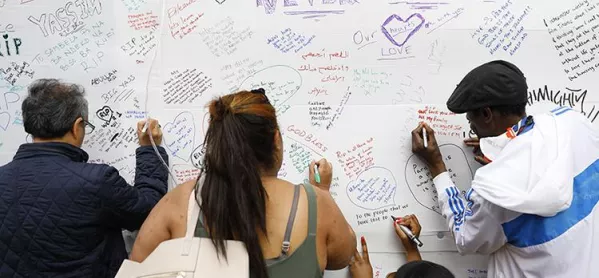I’m supporting the “Save Wornington College” campaign to halt the proposed merger of Kensington and Chelsea College (KCC) with Ealing, Hammersmith and West London College and prevent the closure of its Wornington Road site.
Writing in Tes last week, Mary Curnock Cook, chair of governors at KCC, described joining a sinking ship in May this year. In spite of vociferous local opposition, she appears to be set upon a course of following the government’s policy of “merging colleges to form more efficient entities that can better serve students and employers”. The community has not been provided with any detailed analysis of why the college was allowed to fail so badly or how a merger will bring about salvation, apart from the fact that it’s “national policy”. So how will quality be restored and how will the college recruit new students effectively, or attract the apprenticeship partners that it seeks, given its recent history of poor Ofsted grades, particularly in leadership and management?
‘A traumatised community’
The merger consultation document published on KCC’s website looks familiar, but not convincing. The stated “benefits” of the merger proposal amount to no more than a list of ideas and aspirations. No detailed short-, medium- or long-term plan has been published that might safeguard the future of KCC for the local community. The list of FE colleges failing post-merger is growing, indicating the extremely high risk posed for both KCC and its potential merger partner, which currently has a “good” Ofsted grading - apart from in “apprenticeships”, which requires improvement. This is ominous, given that “employability” and “working with local business’” are key to the proposal.
Mary Curnock Cook talks of the need to deliver “skills, education and training to the community, which rightly sets so much store by it”. Why is she so sure what the community wants or needs? Should a broad education not come first and foremost above skills or training? If not, what should the skills and training be? Should we be more innovative than relying upon buddying up with local businesses at this stage in the 21st century - given that the economy in its present form won’t be fit for purpose in the next one?
Does this traumatised community not deserve to have such questions answered and be shown detailed analysis of the rationale for fundamentally changing one of its most important services, rather than being told what is best for it? Is governance not meant to be about transparency and accountability, for the public good, and are the “funders” to whom Mary Curnock Cook feels responsible not primarily all of us as taxpayers? This raises a wider issue about the accountability of those responsible for governance in the FE sector. Colleges now operate as private institutions with responsibility for public funds, which creates a systemic problem because in my recent experience those who seek answers and accountability from governors are stonewalled.
Grenfell aftermath
In the current tragic circumstances in the wake of the Grenfell Tower fire, lack of inclusion and authoritarian leadership is adding to the suffering that people in North Kensington are going through. Surely a more effective leadership strategy would be to listen to and discuss the ideas and concerns of all stakeholders. I add my voice to that of local MP Emma Dent Coad and ask KCC management team to: “stop the merger decision-making process now, to allow genuine dialogue in a spirit of co-partnership with the local community which you serve. This would give us all the opportunity to consider alternative funding methods and future planning and would give the community time to engage with the council to discuss its pledge to work together.”
Mary Curnock Cook understands that the community has lost confidence in KCC managers and governors. She states: “It is perhaps too much to ask for their trust in this process”. I believe it’s her job to win back that trust. She and her team must work with the community and create opportunities to have that trust restored, because effective leadership is about inspiring people to take a leap with you.
The college’s response
A Kensington & Chelsea College spokesperson said: “A full response to the issues raised as part of the consultation process will be published shortly.”
Jane King is a freelance project manager, runs art-science organisation PaleBlueDot and is a supporter of the “Save Wornington College” campaign
Want to keep up with the latest education news and opinion? Follow Tes FE News on Twitter, like us on Facebook and follow us on LinkedIn
